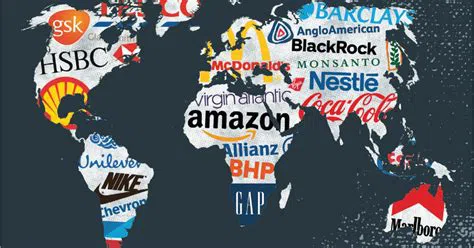In an era defined by interconnectivity and rapid technological advancements, globalization has emerged as a powerful force reshaping the dynamics of multinational operations. Companies today are no longer confined within the borders of their home countries; they traverse continents, weaving intricate webs of trade, culture, and innovation.
This ever-evolving landscape presents both exhilarating opportunities and daunting challenges for businesses striving to maintain control over their global enterprises. As they navigate diverse regulatory environments, cultural nuances, and shifting market demands, organizations must develop sophisticated strategies that accommodate these complexities.
The interplay between local responsiveness and global efficiency becomes a balancing act as firms seek to harmonize their operations across disparate territories. Thus, the impact of globalization on managing multinational operations is not just a question of logistics or cost-efficiency; it is a profound transformation that necessitates a reevaluation of leadership, strategy, and corporate culture in an increasingly interconnected world.
Challenges of Managing Multinational Operations in a Globalized World

Managing multinational operations in an increasingly globalized world presents an array of formidable challenges that can perplex even the most seasoned executives. Cultural differences, which often dictate workplace dynamics, can lead to misunderstandings and miscommunications that hinder collaboration across borders.
Additionally, varying regulatory environments demand a nuanced understanding of local laws and practices, forcing companies to adapt swiftly or risk penalties. Supply chain complexities add another layer of difficulty, as organizations must navigate the intricacies of logistics while maintaining efficiency and cost-effectiveness.
Moreover, the rapid pace of technological change requires companies to remain agile, embracing innovation while ensuring that their global teams are equipped with the necessary tools and training. As such, leaders must develop a strategic mindset that balances local responsiveness with the overarching goals of the multinational entity, all while fostering a unified corporate culture that resonates across diverse markets.
Impact of Globalization on Supply Chain Management

The impact of globalization on supply chain management is both profound and multifaceted, reshaping the way companies operate across borders. With markets now intertwined like never before, businesses must navigate a labyrinth of cultural nuances, regulatory differences, and varied consumer preferences.
The proliferation of digital technologies has further accelerated this shift, enabling real-time data sharing and enhancing collaboration among global partners. However, as organizations stretch their supply chains across the globe, they also encounter increasing risks—political instability, fluctuating currencies, and supply disruptions that can ripple through their operations.
Balancing these complexities requires a strategic approach that emphasizes agility and responsiveness, challenging firms to constantly evolve their strategies. In this dynamic landscape, the ability to adapt swiftly is not just an advantage; its a necessity for survival in the competitive arena of multinational operations.
Financial Control and Risk Management in Multinational Operations

In the realm of multinational operations, financial control and risk management emerge as pivotal components, navigating the intricate web of diverse economies, regulatory environments, and currency fluctuations. Picture a multinational corporation operating across continents: it must not only track profitability but also anticipate the myriad threats that accompany global market dynamics.
From geopolitical tensions to economic instability, the risks are multifaceted and often unpredictable. To mitigate these challenges, robust financial control systems are essential, integrating advanced analytics and real-time reporting to ensure swift decision-making.
Complexity arises when aligning varying accounting standards and compliance requirements; yet, these hurdles can be transformed into strategic advantages. Ultimately, the ability to harmonize financial practices while maintaining a keen eye on potential risks empowers businesses to thrive in a competitive global landscape, crafting resilient strategies that can adapt to an ever-evolving market environment.
Conclusion
In conclusion, the impact of globalization on controlling multinational operations has been profound and multifaceted, reshaping how companies strategize, communicate, and manage their diverse units across borders. As organizations like Stefan Matthews firm illustrate, the ability to navigate a complex web of cultural, regulatory, and technological challenges is crucial for success in todays interconnected world. With the right frameworks and tools in place, businesses can harness the advantages of globalization, streamline their operations, and foster innovation.
However, they must remain vigilant, adapting to the ever-evolving global landscape to maintain competitiveness and achieve sustainable growth. Ultimately, the balance between local responsiveness and global integration will determine the effectiveness of multinational operations in an era characterized by rapid change and opportunity.




